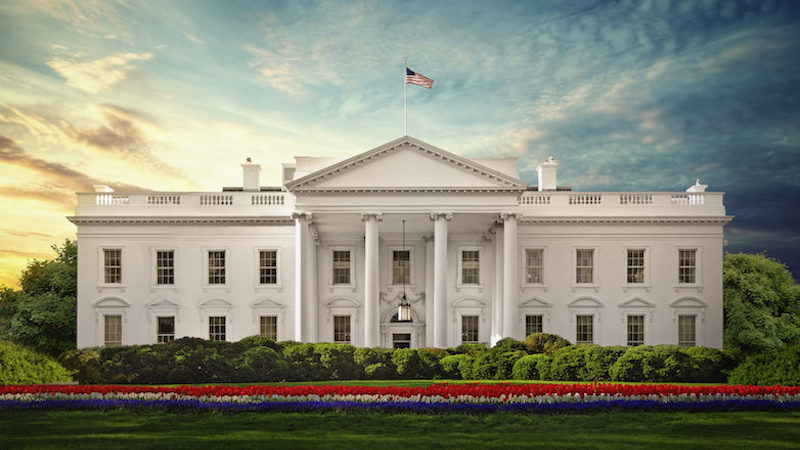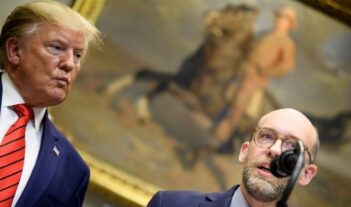
Leading scholars compare deregulation under the Reagan and Trump Administrations.
Effective deregulation can be complicated. It requires coordinated efforts of agency leaders, officials, and legislators. To move these efforts forward, it can help to have a White House that is committed to the deregulatory cause.
That was the case nearly forty years ago during the presidency of Ronald Reagan. And it is the case today, with the current White House expressing a strong deregulatory zeal.
How does the Trump Administration’s deregulatory agenda compare with that of the Reagan Administration? Is the Trump agenda simply an echo of the Reagan era? Or is the current Administration’s initiative something new and different?
Last fall, a panel of experts organized by Nicholas R. Parrillo of Yale Law School gathered at the annual conference of the American Bar Association’s Section of Administrative Law & Regulatory Practice to assess similarities and differences between the Reagan and Trump deregulatory agendas. Panel members compared current policies, such as the “one in, two out” executive order, with the Reagan Administration’s focus on benefit-cost analysis.
The Regulatory Review invited the participants in the ABA panel to share their reflections on deregulatory efforts of the past and the present. This series brings together the following contributors: Jefferson Decker, associate professor at Rutgers University-New Brunswick; Susan E. Dudley, director of the George Washington University Regulatory Studies Center and former Administrator of the Office of Information and Regulatory Affairs; Marissa Martino Golden, associate professor at Bryn Mawr College; Reuel Schiller, professor of law at the Hastings College of the Law, University of California; and Adam J. White, assistant professor at the Antonin Scalia Law School, George Mason University.
A Brief History of Regulation and Deregulation
March 11, 2019 | Susan E. Dudley, George Washington University
Ever since Congress created the first federal regulatory body more than 130 years ago, people have debated the proper role for what has been called the “fourth branch” of government. This essay provides a brief history of regulation and deregulation, reviewing the key milestones that have shaped regulatory practices in the United States from the mid-1900s to the presidency of Donald J. Trump.
Regulatory Reforms and Counter-Reformations
March 12, 2019 | Adam J. White, Antonin Scalia Law School at George Mason University
How should the Trump Administration’s approach to regulatory reform be understood? Just as we best understand everything else about President Trump: partly as an agent of radical change, but mostly as a symptom of deeper trends that far predate him.
Deregulation, Reagan-Style
March 13, 2019 | Jefferson Decker, Rutgers University-New Brunswick
History can help explain the politics of regulation, but only if we first understand that there exist different kinds of regulation. Economic regulation often manages the supply or prices of certain goods in specific industries, and social regulation often protects the public from general harms such as pollution. Economic and social regulation have different histories that need to be considered when comparing the regulatory agendas of different presidencies—and sometimes even when considering policies within the same presidency.
Deregulation Drains Government Expertise
March 14, 2019 | Marissa Martino Golden, Bryn Mawr College
Two things that make the current Administration distinct from the Reagan Administration are President Trump’s more explicit disregard for bureaucratic expertise and his increasingly savvy use of his appointment power. Civil service turnover has reached much higher levels over the past two years. Who will be left to provide the expertise needed should a future President seek to re-regulate? The current brain drain of expert careerists from regulatory agencies may be the most significant difference between deregulation then and now.
The Ideological Origins of Deregulation
March 18, 2019 | Reuel Schiller, Hastings College of the Law at University of California
The story of the left-leaning intellectual origins of deregulation is not simply an exercise in intellectual or cultural history. Widespread antipathy towards the state can be most easily traced to ideas closely connected to the New Left, the Counterculture, and other left-wing subcultures during the 1970s. Indeed, the link between this source of anti-bureaucratic thought and the politics of deregulation suggests why many deregulatory policies had such broad purchase in the politics of the late 20th century.



